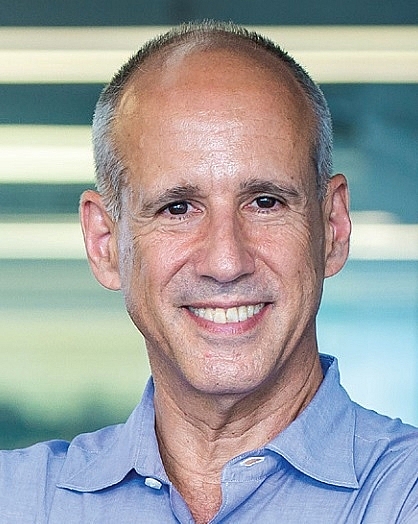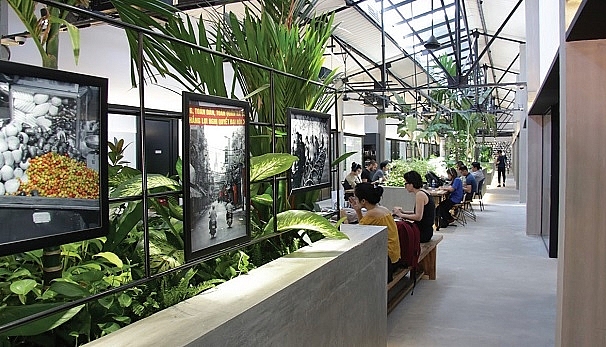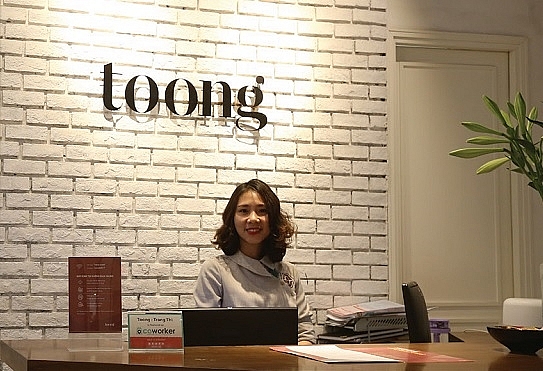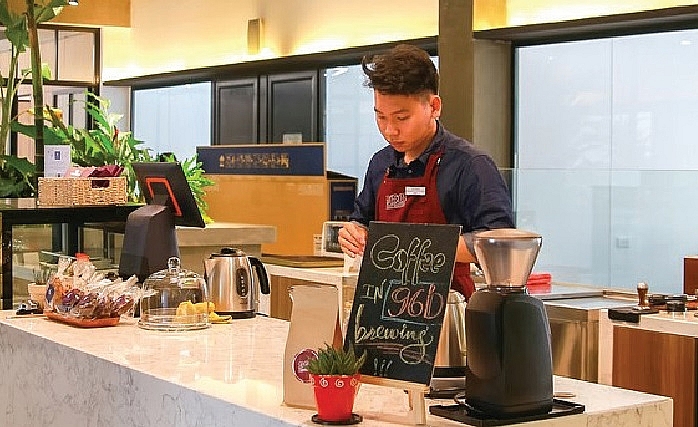Regulations moving in the right direction-But there is work to be done
 |
Foreign direct investment (FDI) in the real estate sector has transformed Vietnam’s urban landscapes, with the vistas now sporting spectacular developments from the very first big names, like Phu My Hung, Ciputra, and of course Indochina Land. What role has FDI played in the Vietnamese real estate market?
FDI has helped introduce international standards for real estate development in Vietnam. With The Nam Hai and Six Senses Con Dao, Indochina Land raised the bar for resorts in Vietnam, thus firmly planting the country in the arena of global luxury tourism. Our other developments, including Indochina Plaza Hanoi and Hyatt Regency Danang, have made high-end properties accessible to Vietnamese people, owners, and tenants alike. We also inspired the property market in Vietnam to adopt and embrace world-class standards in terms of design, services, and operations.
Furthermore, a portion of FDI has been devoted to improving infrastructure in Vietnam. Accessibility is a key driver for success in any real estate market, and the improvements in airport capacity and road networks have enhanced the attractiveness of Vietnam’s real estate developments.
Recent statistics show that South Korea, Singapore, Japan, Malaysia, and Hong Kong remain the largest foreign investors in the Vietnamese real estate market. Does this mean that Vietnam is not attractive enough for European and US investors due to geographic distance and the regulatory system?
Due to cultural familiarity, Asian investors tend to be more aggressive compared to their European and North American counterparts in the Vietnamese real estate market. European and North American investors are mostly unfamiliar with the market dynamics and regulatory environment in Vietnam, therefore, they are more risk averse and less likely to enter the market. In many cases, you will find that European and North American investors are more inclined to partner up with a local group who has the experience and relationships required to succeed in this sector.
Asian investors are more comfortable working on their own, because they tend to better understand the challenges of working in the region. You will find many more parallels developing real estate in Jakarta and Hanoi than in New York and Ho Chi Minh City. Additionally, these Asian companies may also have previous relationships that facilitate their entry to the market, allowing them to feel more at ease when conducting business in Vietnam.
On the other hand, Indochina Land, despite its North American roots, has been operating in Vietnam for 20 years. During this time, we have developed great relations with Vietnamese counterparts. Our staff is fully localised and have a vast understanding of the Vietnamese business culture. We are quite comfortable in developing either with local partners or on a 100 per cent foreign-owned basis.
 |
As a veteran, what do you see as the highlights of FDI activities in the real estate sector in the coming time?
Firstly, Vietnam is one of the world’s fastest growing economies. PwC forecasts that Vietnam will be the fastest developing country over the next 30 plus years and join the top 20 economies in the world (top 10 in Asia) by 2050. Opportunities in Vietnam are plentiful and it continues to be one of the most exciting markets globally.
Moreover, the country has one of the largest emerging middle classes in Asia. The middle and affluent classes, which we define as individuals who have an income of or greater than $8,500, will grow from 12 to 33 million between 2014 and 2020. This sort of growth is highly attractive to foreign developers, who see the emerging middle class as a key market. In 2017, domestic tourist arrivals reached 73.2 million in Vietnam, roughly five times the amount of international tourist arrivals, which grew to nearly 13 million. The emerging middle class will continue to fuel the growth of domestic tourism, creating a desirable market for foreign developers to target.
Finally, the Vietnamese government has focused on transportation infrastructure to improve international and domestic accessibility. The government spent 5.7 per cent of the GDP on infrastructure in 2017-the highest percentage in Southeast Asia. Terminal expansions for international airports in Hanoi, Danang, and Saigon are already underway, with further runway upgrades planned for Nha Trang and Haiphong. New international airports are opening up later this year in Phu Quoc and Van Don, which will significantly boost tourist arrivals in both regions of the country. This demonstrates the government’s commitment to the tourism sector, an integral element for attracting FDI to the Vietnamese real estate market.
 |
| Wink Hotels offer modern fully-equipped co-working space to allow holiday-goers to work while they play |
 |
After more than two decades of developing very successful luxury-commercial properties under resorts and branded residences in Vietnam, Indochina Land has recently launched its first hotel brand in Vietnam-Wink Hotels. Is this a move to transform yourself and lead a new trend in the Vietnamese real estate sector?
After an extensive foray into the high-end and luxury segment, where we built some of the most recognisable real estate properties in Vietnam, we are looking to cater to a different segment of the market—the new generation of travellers. Vietnam’s young and dynamic population is a market that we believe has been largely untapped, which explains our decision to create Wink Hotels.
Wink Hotels seeks to personify the dynamic youthful generation emerging throughout the region. Blending modern, creative design and functionality with traditional Vietnamese values, each hotel promises to satisfy the young-at-heart traveller’s contemporary set of desires. Each hotel will offer a new style of entertainment, innovative food and beverage concepts, minimalist-style guestrooms, state-of-the-art technology, and a well-equipped co-working space managed by our partner, Toong—a tantalising hospitality experience that will be the first of its kind in Vietnam.
With the creation of Wink Hotels, we hope to be the leaders of the “affordable luxury” segment in the Vietnamese real estate sector. We intend to celebrate Vietnamese culture, while upholding the highest standards in service and design, and to create a destination for those who want to be a part of an aspiring community.
Over the next decade, we intend to build out a portfolio of Wink Hotels nationwide. At the same time, we will continue to develop high-end and luxury residential, commercial, and resort properties through our partnership with Kajima Corporation, ICC-Kajima Development.
How do you envision FDI in the real estate market in the coming time? Will the Vietnamese regulatory system be able to catch up with the market movements?
I expect foreign investors to continue to flock to the Vietnamese real estate market due to its characteristics-full of opportunity, strong growth, and stellar demand. Although the government has implemented policies that promote tourism, such as the relaxation of visa requirements to certain countries, as well as the commitment to improving infrastructure, Vietnam still has a long way to go in terms of its regulatory environment.
While I believe the playing field was quite level a decade ago, today’s new regulations clearly favour the local developer.
As it currently stands, foreign investment is still highly regulated and restrictive, increasing the cost of entry, and discouraging foreign investors from the Vietnamese real estate market. The current regulations, coupled with a complex legal system, heavily favour local developers and those who have experience in the market.
As the regulatory environment improves, more foreign developers will enter Vietnam. However, given the slow-moving nature of the regulatory system, I find it hard to envision a scenario where Vietnamese law, as it relates to foreign investment and foreign ownership of real estate, will be able to catch up with the market itself, especially considering the amount of property developments that are underway and in the pipeline throughout the country. Nonetheless, we have seen pro-growth policies being pushed by the Vietnamese government. Regulatory and state-owned enterprise reforms are on the horizon with a much more forward-thinking orientation, in addition to Vietnam’s participation in regional free-trade agreements.
Although there is still work to be done, the country is moving in the right direction.
What the stars mean:
★ Poor ★ ★ Promising ★★★ Good ★★★★ Very good ★★★★★ Exceptional
Related Contents
Latest News
More News
- Wink Hotels to revolutionise the hotel industry (June 30, 2022 | 10:00)
- Wink Hotels revolutionises new breed of hotels for travellers (June 27, 2022 | 09:49)
- Getting back in the travel groove for 2022 (January 04, 2022 | 10:27)
- Bank and real estate giants team up (April 26, 2021 | 09:51)
- Indochina Kajima commences Phu Yen luxury tourism project (April 05, 2021 | 13:04)
- Foreign investment continues to flow into hospitality market (March 15, 2021 | 11:17)
- Satellite towns with purpose (January 19, 2021 | 11:00)
- Wink Hotels’ first hotel opening in Ho Chi Minh City (January 19, 2021 | 10:59)
- Seizmic shifts in Vietnamese real estate market (November 26, 2020 | 12:34)
- Wealth creation amid the coronavirus conundrum (November 09, 2020 | 08:20)

 Tag:
Tag:













![[Infographic] AMATA: Industrial and Smart City Developer](https://vir.com.vn/stores/news_dataimages/2026/022026/12/16/croped/amata-industrial-and-smart-city-developer-20260212165823.jpg?260212050401)






 Mobile Version
Mobile Version